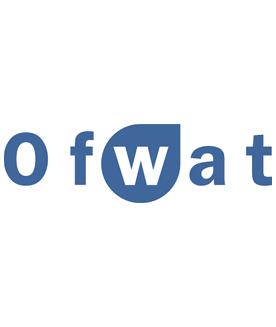
Will competition in water retail in the UK achieve its objectives?
Ofwat, the UK’s water regulator, has announced plans for greater competition in the UK water market. They hope that it will be a driver of improved customer service, noting, for example, that “only two of the water companies in England let their customers manage their bills using an app".
 In theory, comments the BBC, “it could mean that banks, supermarkets or phone companies could also sell water”. This has a familiar ring to it. The same thing was said about the electricity industry in the early 1990s when competition was introduced. But within a decade, London Electricity was paying compensation to customers who were signed up by Virgin HomeEnergy (which LE Group part owned) after the energy regulator Ofgem proposed a £2m fine for failing to prevent sales staff from using unscrupulous selling tactics to gain new customers.
In theory, comments the BBC, “it could mean that banks, supermarkets or phone companies could also sell water”. This has a familiar ring to it. The same thing was said about the electricity industry in the early 1990s when competition was introduced. But within a decade, London Electricity was paying compensation to customers who were signed up by Virgin HomeEnergy (which LE Group part owned) after the energy regulator Ofgem proposed a £2m fine for failing to prevent sales staff from using unscrupulous selling tactics to gain new customers.
The trouble is that electricity is an invisible product and it’s pretty difficult to differentiate it. Has competition led to improved customer service in the energy market? Probably not. Market forces have done this as companies have found cheaper ways of interacting with customers. An app for billing is a lot less costly than a customer services rep in a service centre. Nor has it led to the level of switching that policy makers would like to have achieved and plenty of organisations have sought to explain why.
So, are the prospects for water any better? Ofwat is certainly trying to ensure that switching is made as easy as possible from the get-go. Which it was not for electricity. And water is a visible product. But there are still very limited opportunity to differentiate it. It’s not like it can be delivered through the pipes with a unique flavour or odour, or a unique origin. You need bottles for that.
The alternative approach for the regulator would be to place tighter financial restrictions on the ability of the water utilities to make profit as a way of driving innovation in their business processes. This would benefit customers and the industry that serves the water sector. But the utilities always point to the impact that this would have on their ability to raise capital, large amounts of which are needed for the major infrastructure projects that are required in the sector.
i2O, which is here to help water utilities address the challenges they face, is working on a new solution that delivers a greater level of insight from closer integration between data from the distribution network and from customer services to help predict, detect, better manage, and prevent network issues. This will give utilities competitive advantage in retaining their existing customer base, and will help deliver improved customer service. Perhaps it’s the threat of competition that will deliver the innovation rather than the reality of it.
Tags: Blog, Public Policy & Regulation, UK